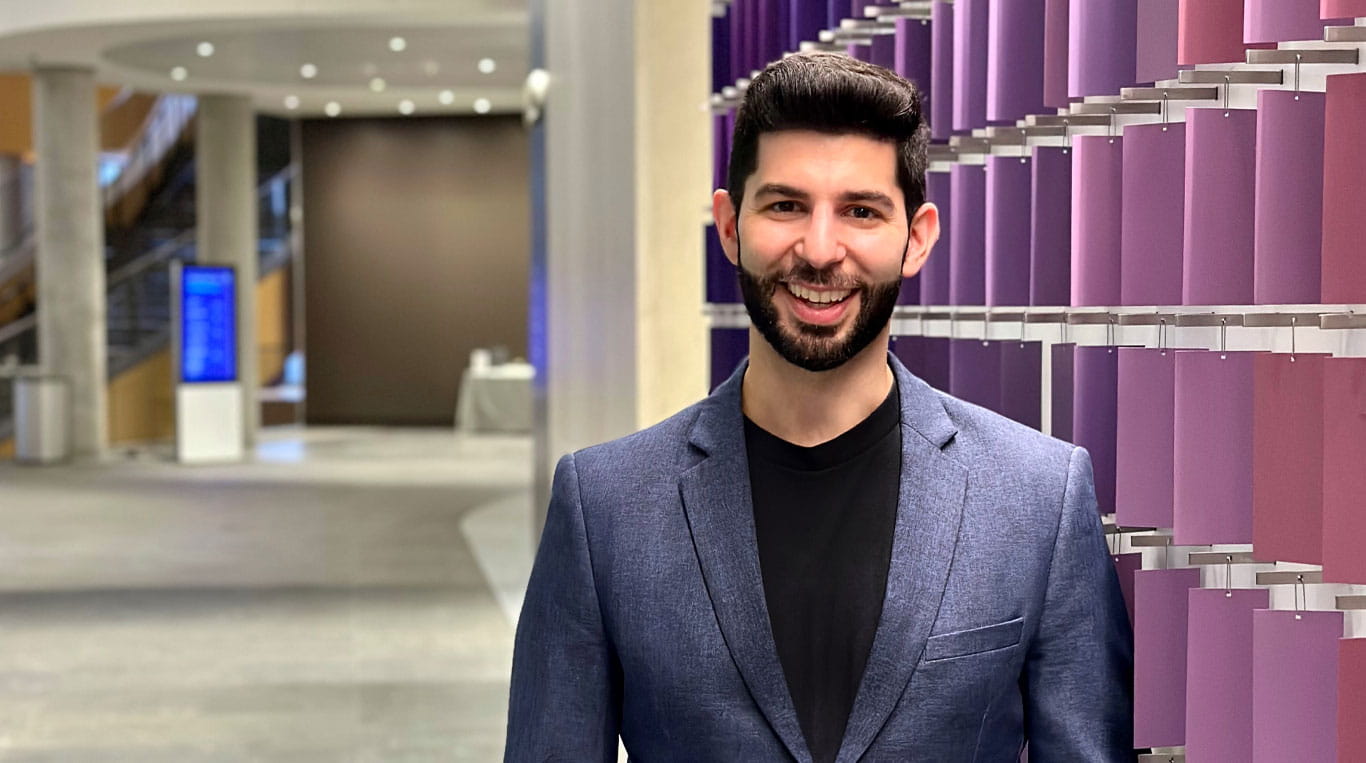Where theory meets traction: Bringing a biotech startup to life

By Nick Deraney ’25 MBA
Before Kellogg, I spent years in venture capital, often evaluating startups from the outside. Thanks to Commercializing Innovations that I took this past spring — an experiential MBA course in partnership with Northwestern’s Querrey InQbation Lab — I got the chance to step inside. Through the course, I began working with ImmPro, an early-stage biotech startup out of Neil Kelleher’s lab at Northwestern University. ImmPro is helping de-risk clinical trials by unlocking high-resolution protein data which gives scientists a clearer view of disease biology and new paths to biomarker discovery.
This summer, I’ve been able to continue working with them and have been fortunate to be working alongside Jack McGee, CEO of ImmPro, to develop a commercialization strategy for this platform, translating complex science into something customers not only understand but truly value. The project has pushed me to apply nearly every tool I picked up at Kellogg, and it has become an incredibly formative experience.
The rollercoaster looks different from inside the car
Coming from the venture side, I knew startups could be unpredictable. But knowing it and living it are two very different things. Within the first week, I felt the highs of customer outreach, the hope of investor calls, and the frustration when momentum stalls or timelines shift.
Some days, we’d walk away from a meeting feeling unstoppable. Other days, progress felt slow or uncertain. Then out of nowhere, a potential customer would reach out, opening up a conversation that could change our trajectory. The emotional swings are real, but they come with a sense of purpose. You’re not operating in the abstract. Every conversation and every decision has the potential to shape the business. That kind of ownership is rare, and it’s what made this experience so energizing.
Bringing class frameworks into the real world
It didn’t fully hit me how much I had learned at Kellogg until I had to put it all into practice. Our go-to-market strategy was shaped by Growth Strategy Practicum with Professor Karin O’Connor and Marketing Strategy for Growth and Defense with Professor Jim Lecinski. I leaned on Entrepreneurial Finance and VC with Associate Professor Scott Baker to think through cap tables and investor communication.
And I wouldn’t be working on this project at all if it weren’t for the Commercializing Innovations distinguished industry experts including Birju Shah, Sonia Kim and James Conley. Negotiations with Professor Nour Kteily helped prepare me for both investor and customer conversations.
Business Law with R. Mark McCareins gave me the grounding to understand the legal considerations of running a business. Visualization for Persuasion with Steven Franconeri taught me how to distill complex science into something compelling and digestible. And Building Innovative Teams and Cultures with Mark Achler shaped how I think about leadership, collaboration and intentional team dynamics.
Most importantly, Personal Leadership Insights with Associate Professor Paul Corona reminded me how powerful listening can be — this has been essential in the technical and fast-moving biotech industry.
Honestly, I could name even more. The professors at Kellogg are incredible, and their classes gave me a toolkit I’ve drawn from every single day.
Listening as a leadership skill
When I joined ImmPro, I had no background in biotech, but I quickly realized that expertise wasn’t the most important thing that they needed from me. The ability to listen, ask smart questions and learn fast mattered more.
That approach carried through everything from scientific deep dives to customer interviews. It helped me navigate unfamiliar terrain with humility and curiosity. As a result, our team was able to move faster, ask better questions and get to the root of what potential customers actually care about.
The Kellogg network in action
Another powerful part of this experience has been the Kellogg network. Any time I needed to explore a new segment, understand the pharma landscape or validate a decision, someone was just a text away. Whether it was a classmate with biotech experience or an alum in healthcare VC, the support came fast and freely.
It’s one thing to hear about the “give first” culture at Kellogg, and it’s another to feel it in action. That mindset has been a consistent, invaluable part of this project.
One of the things I’ve come to appreciate most is how supportive the Kellogg community is when you decide to take the less obvious route. Whether you're launching something, joining an early team or just trying to figure it out as you go, the network shows up. It’s a place that encourages you to walk to the beat of your own drum and backs you when you do.
Redefining leadership and impact
This experience has reshaped how I think about leadership and the kind of work that motivates me. At ImmPro, leadership isn’t about titles. It’s about being present, taking ownership and solving problems as a team. There’s no script, just trust, curiosity and a shared purpose. That’s the type of environment I want to help build after Kellogg.
I know I want to keep working alongside innovators, whether it’s at a startup, on a strategy team or through venture capital. It doesn’t have to be deep science. What matters most to me is working with passionate people on problems worth solving, with enough flexibility to move fast and make an impact. This experience confirmed that that’s where I thrive, and where I want to keep growing.
Read next: No Code, No Problem: Kellogg Says Its New AI Course Is Built For Every MBA
